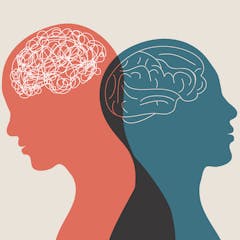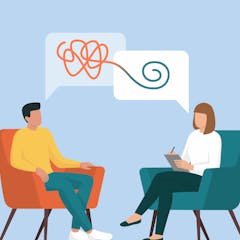
Articles on Psychotherapy
Displaying 1 - 20 of 48 articles

Parenting with ADHD presents unique challenges but also strengths. By using strategies for managing ADHD, and seeking resources when needed, parents can create a positive and fulfilling family life.

Combining psychotherapy with medication can lead to more immediate and enduring results by boosting the brain’s neuroplasticity.

Scientists need safe spaces to understand and process “climate emotions”. Group therapy helps people find the strength and resilience to continue their important work, without harming their health.

In addition to placebo effects, patients might be motivated to report they have gotten better, even when they haven’t.

An overreliance on medication as the first-line treatment for depression can lead some people to be labeled with treatment-resistant depression when there are other viable alternatives for relief.

So you want to start therapy for your anxiety, depression or other mental health issue. What type of therapist should you choose? Here’s a quick guide to get you started.

Patients who undergo transcranial magnetic stimulation say it’s painless, with few to no side effects. The treatment isn’t yet widely accessible, but for those who use it, the effects can be profound.

With its lovingly rendered characters and sharp aphoristic prose, Sweeney and the Bicycles is a study in radical self-absorption.

This rare procedure is offered by only a handful of centers in the US and around the world and should be used only when less invasive treatment options for OCD have been tried.

In a new study, a single infusion of the antidepressant – along with repeated exposure to positive imagery – significantly reduced symptoms in depressed patients in a clinical trial.

Four ways to help you focus on the future for a better life.

Psychotherapy is not one size fits all. From behavioral to gestalt therapies, which approach will work best for you depends on your needs and goals.

Our research investigates the connections among mental health, holistic well-being and relational virtues – ideas that many people think of as ethical or religious.

Some psychedelic drugs – paired with therapy – hold great potential for helping sufferers of PTSD, depression and other mental health disorders.

Some therapists are calling for a new way to understand human distress.

AI chatbots can provide mental health support for people who are isolated during the COVID-19 pandemic.

With most therapy sessions now online, a psychologist explores whether more self-disclosure by therapists – sharing more about their own lives – might help their patients.

In the time of the coronavirus, learning how to adapt to adversity belongs in your toolkit.

A mental health crisis has begun, as social isolation from the coronavirus and loss of jobs, income and loved ones have left people reeling. A transformation of care is badly needed.

Because of COVID-19, more and more therapists are turning to telehealth counseling and finding help. Could this be the wave of the future?
